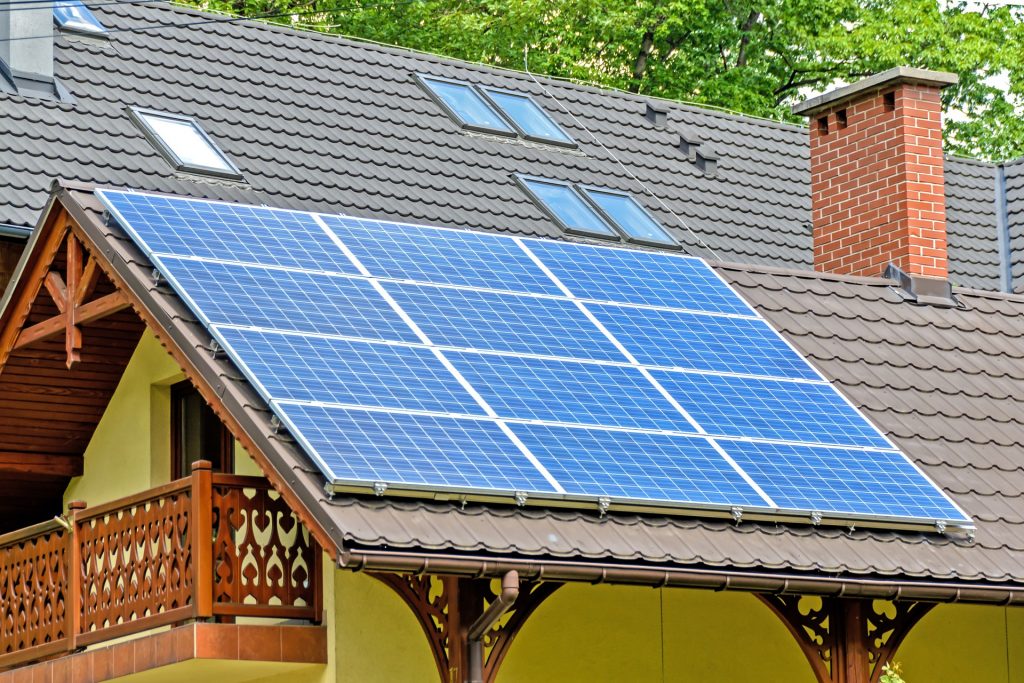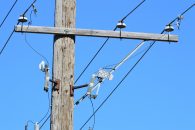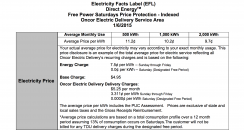
In a state filled with sunshine, using solar power can help lower your electricity costs in two ways. The first is by creating your own solar energy. Installing panels on your roof turns your house into a power station, and generating your own electricity can result in big savings. Installing solar panels in your house also increases its resale value. Like every big life-style decision, generating your own solar energy has some pros and some cons.
A second way to acquire the benefits of solar energy is to locate an electricity provider with a solar-based energy plan that meets your needs. This is a construction-free way to become part of the solar energy movement. You can benefit from solar energy without giving up the flexibility to try other energy sources if your needs change.
Installing a Solar Panel System
Generating your electricity by installing rooftop solar panels is a big, long-term decision. According to Solar Power Authority, in a study of national average costs, it takes roughly 100 square feet of solar panels to generate a kilowatt of electricity. Installation of a panel system large enough to generate 5 kilowatts can cost between $25,000 and $35,000.
Some of the advantages of installing a solar panel system:
- Generating your own power lowers your day-to-day costs for electricity.
- Generating your own power helps contribute to a smaller carbon-footprint.
- Most solar panel systems are easy to maintain; the major concern is keeping them free of dirt and debris.
- In an area where solar energy is popular, an existing panel system may make your house more attractive to buyers.
- Federal tax credits, up to 30 percent of purchase costs through 2019, save you money on installation of solar panel systems. Note: tax credits are due to be reduced in 2020 and phased out by 2022.
Some of the disadvantages of solar panel systems:
- Installing solar panels is not an option for all houses. You need enough roof space and the right kind of roof. To be sure that solar conversion makes sense for you, you may wish to consult an architect or engineer as well as an installation company.
- The biggest savings on electric costs appear on the biggest electric budgets. If you are a small to moderate user of electricity, installing solar panels may mean spending more to save less. If electricity is a big consideration in your budget and critical to maintaining the spa, the pool and hybrid cars, installing solar panels can result in bigger savings.
- In areas where solar power is not particularly popular, solar energy systems do not add greatly to the resale value of your home and may drive some buyers away.
- Solar panel system warranties tend to run approximately 25 years. Consider how repair/replacement costs will fit into your plans to stay in your house or sell it.
Solar Panel System Pros and Cons Specific to Texas
Texas is rich in resources, and one of them is sunshine. It seems a simple decision to choose this free natural resource in order to save money. Some unique characteristics of the Texas economy, however, results in serious competition for sun-powered electricity.
- The resources: To generate energy, Texans have a wide range of choices—sun, wind, natural gas and oil. The state’s historic commitment to production of gas and oil have resulted in less government support for sun and wind-based technologies than in many other states. Texas producers have a strong stake in continued production of the resources that have made the state great, and even committed conservationists are less likely to attach automatic labels of “dirty” to oil and gas, and “clean” to wind and sun.
- The market: Along with broad choice, Texans favor a competitive, rather than highly regulated, marketplace for many consumer goods, including energy. In the state’s deregulated energy market, consumers are offered a wide range of choices and providers, and have the opportunity to tailor goods and services very specifically to their needs and wants. This has two consequences for solar energy. First, Texas’s open market does not provide regulated “net metering” for solar electricity. In one of the 31 states where government oversees “net metering,” regulations let customers whose solar panel systems produce more electricity than they can use to sell their excess back to the grid for access by other customers. In some states, “net metering” is a major attraction to installing solar energy. Without it, customers lack one potential money-saving incentive to go solar.
Enrolling in a Solar Energy Plan
If installing solar panels seems too costly or impractical, you can still have the benefits of solar power by choosing one of the “green energy” options offered by many electricity companies. Green power plans let you drink the milk without owning the cow. Electricity is delivered conventionally from sources that draw on solar, wind and even hydroelectric energy to provide power. Expect to pay a bit more for green power.
Some companies, like Champion Energy (“Exclusive Electricity Provider of the Houston Astros”) proclaim proudly that 100 percent of their green energy comes from renewable, green resources. Other companies offer green plans as one of several options; Direct Energy, for example, offers Houston residents a Green Texas 12 plan at rates competitive with other 12-month plans. Green energy may not be the cheapest possible choice, but electricity companies work hard to make renewable energy rates competitive.
Choosing a green plan may be the best way to participate in a changing market if you are already economical in your use of electric power. A green plan also lets you make environmentally-based choices if you rent your house or live in an apartment. Whether you plan to stay in your home for a long time or move in the near future, you leave potential property-buyers a clear field to choose the energy provisions that best suit their needs and wants. The open, competitive Texas energy market makes solar power just one more player on the energy team. Look carefully at the green, renewable energy generating technologies in your area when choosing an electricity plan.











